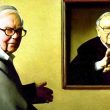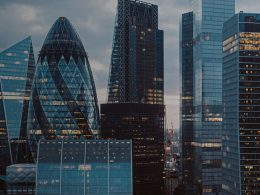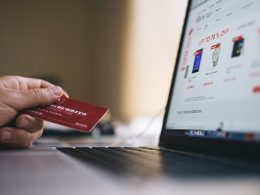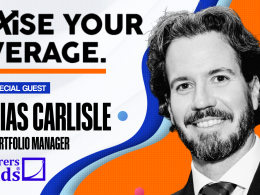What will it take to rebuild investor confidence? Financial Thought Leader David Darst, Chief Investment Strategist at Morgan Stanley Smith Barney, will discuss the positive signs he’s seeing in the U.S. and global markets and why investors should start to trust the markets.
Full Transcript:
Consuelo Mack WealthTrack - September 14, 2012
CONSUELO MACK: This week on WealthTrack, what will it take to rebuild damaged investor confidence? Financial Thought Leader David Darst, Morgan Stanley’s Chief Investment Strategist, shows us the steps to take to build a stronger and more secure financial house. David Darst is next on Consuelo Mack WealthTrack.
Hello and welcome to this edition of WealthTrack. I’m Consuelo Mack. Is the cult of equity dying, as bond king Bill Gross recently opined in his monthly investment outlook? Gross runs the world’s largest and one of its most successful bond funds, the PIMCO Total Return Fund and is one of the country’s most influential investors and prognosticators. As Gross’ chart, “Stocks For The Really Long Run” shows, stocks, with their 6.6% annualized inflation adjusted returns, have vastly outperformed bonds and cash over the last one hundred years; a fact chronicled by Wharton professor Jeremy Siegel in his investment classic, Stocks for the Long Run . Gross maintains this track record is unsustainable for a number of reasons, not the least of which is PIMCO’s expectation that the economy will grow at a much slower pace for the foreseeable future. Under PIMCO’s now famous “new normal” forecast, real GDP should crawl along at 1-2% a year versus the historical average of 3.5% in the post-war era.
Many investors seem to agree that the cult of equity is dying. Investors have been pulling money out of stock mutual funds for years. As independent research firm Bianco Research reports and its chart of cash flows into U.S. stock mutual funds shows, “investors correctly started selling domestic equity mutual funds on an annual basis in mid-2007… in fact, in the months ending May 2012, net new cash flow out of these funds set a record at $193.93 billion.” You sure wouldn’t think so looking at how the markets have performed this year though. Stock markets across the world have rallied, led by the U.S. Professional investors are much more bullish than individuals are about the ability of the Federal Reserve and the European Central Bank among others to boost growth and stimulate demand.
Put this week’s WealthTrack guest in the optimist’s camp, with some caveats and measured advice for investors. He is Financial Thought Leader, David Darst, Chief Investment Strategist at Morgan Stanley, where he criss-crosses the globe advising clients. He is also an acknowledged expert in asset allocation and a prolific author. Among his most recent books is a best seller, The Little Book that Saves Your Assets , which I highly recommend. I began the interview by asking David, given recent events, why should investors trust the financial markets.
DAVID DARST: Well, I think the basic reason is that we trust America, the United States of America. America is certainly a country that's had its ups and downs. We've been through the Depression, we've been through world wars, we've been through great conflicts that were not of world war scale, but they've been significant for our heroes and heroines. But I have great faith in the people, the deep-keeled strength of this nation to keep this nation in balance. This nation is the destiny, this nation is the hope of this world.
And why should Americans trust in the financial system? We will get it right. No family is perfect. Marriages have problems. Your kids have problems. Everybody has problems. It's not the problems- it's how do we deal with problems? I was recently having lunch with someone and she said it's not what baggage you have, it is how you deal with the baggage you have, and I think this is baggage- these scandals, the trading, the high frequency trading, the flash crashes. These are things, this American ideal, this American history, and it's 100% correct, we move to basically… we love problems. We go with the problems and we solve them. Do we do it overnight? No.
And I also have faith in the basic people who do the work in this country, and who do the work in this financial system, that they will do the right thing. Do you have bad eggs? Read the Old Testament. There's thousands of stories in there of people … one guy kills his brother because the smoke goes up to heaven and his doesn't. But does that mean we have to stop the Bible in Genesis right there, Cain and Abel? No. And we're going to have people who make mistakes. We're going to have pilots who… we're going to have planes that crash, we're going to have systems that crash, but I think this whole American ideal is that we will work to fix this.
CONSUELO MACK: So what has been fixed that you think that we can feel better about the fact that we are addressing our issues?
DAVID DARST: Consuelo, number one is public awareness. A show like yours educates people. It is not a high frequency trading show. It is the antidote. You and I have talked about this. It is a show of thoughtfulness, of reflection, of appropriateness, of judiciousness. And I believe what has been fixed is there's much greater public awareness of these things, and they are now on the agenda. They are not hidden. They are not something that we're blissfully ignorant of. What has been fixed? People, the SEC, the NASDAQ, people are aware of some of the big egregious errors; the word egregious comes from egrex- in Latin, out of the flock. These things that have been outliers, have been recognized as such, and we are going like the good shepherd to bring that thing back like Rin Tin Tin and Lassie, and bring them back into the fold.
CONSUELO MACK: So let's talk about what's changed as far as when you're talking to clients and advising them on their investments, because many people feel that the markets have fundamentally changed. You mentioned the flash crash, for instance. The fact is that we have had, in the last five or six years, or ten years, we've had two back-to-back market declines of 50% or more.
DAVID DARST: Well said.
CONSUELO MACK: So there's tremendous volatility in the markets right now. It feels like the very nature of the markets have changed, that computers are in charge and the humans are not. So, what has changed and how do we adapt to it to get the kinds of returns that we want from the market?
DAVID DARST: What has changed is in 1876 somebody dropped acid on himself in Boston, Massachusetts and said, "Watson, come here, I need you." And Alexander Graham Bell, Watson came running in, and we had the telephone and we were able to have information travel through the distance and now it's sped up to almost instantaneous speed of light. What has changed is the speed at which things are being thrown at us, and we have to become a little bit more nimble, we have to pay a little bit more attention. You and I have discussed you had to drive, you have to drive occasionally with both hands on the steering wheel, wear a seat belt and pay attention to the road. This is not autopilot.
CONSUELO MACK: And you said it's not a cruise control market, but it hasn't been in quite a while. So if it's not cruise control, I mean, you know, do I have to be a Grand Prix driver in order to navigate the market, in which case--
DAVID DARST: Stay within your lanes, stay down the middle of the highway, and if it says "Don't Pass" don't pass. And what I mean by that is, what's changed is the speed. What has not changed in 10,000 years since they began drawing images at Lascaux, Spain and Altamira, okay, over there in those caves-- what's not changed is the things that frighten us are still the things that frighten us and the things that get us excited and greedy are still the same things. Human nature has not changed. The world has changed. I tell all of our financial advisors, our clients, the world as we know it is not the world today that we did know it. It is the end of the world as we know it, Consuelo, is not the end of the world. We have three big changes: demographics, technology and globalization. And the technology piece is what you're putting your finger on, and that has changed, no question about it.
That having been said, the things… Buffet says when people are greedy then you have to basically stand back. When people are fearful, then you've got to force yourself. And I think one of the great things of this show is that you give this long-term perspective, and when things get sold down, our philosophy, number one, asset protection is paramount. The key second word of our philosophy is the word protection; secondly is correlations are critical. You want to have asset classes that zig when others zag so that you're calm and you are like a surgeon operating on your own relative. You have ice water in your veins, and that's given to you by assets that do well when others aren't doing well.
CONSUELO MACK: And the non-correlated assets continue to be non-correlated.
DAVID DARST: Those are cash. Those are managed futures. Those are precious metals. Those are inflation index securities which you have been a pioneer on in your show.
CONSUELO MACK: Let's go back to some of the fundamental changes, and you mentioned demographics. A lot of people don't pay as much attention to the aging baby boomers, which made such a huge difference in the market rallies of the ’80s and ’90s and so …
DAVID DARST: It was like a religion. They told us to buy stocks and hold them.
CONSUELO MACK: Right. There's a major reason why stocks went up, because the baby boomers were a huge consumer, huge stimulative factor. They are now aging, so their patterns are going to change. How much of a drag or a headwind is that going to be on market returns for the next 20 years?
DAVID DARST: Consuelo, I think many of the baby boomers are going to want their portfolios to be more stable and they're going to want them to generate more income. Those are a couple of givens . Professor Siegel and, you know …
CONSUELO MACK: Jeremy Siegel, right, Wharton.
DAVID DARST: Jeremy Siegel at Wharton. Professor Siegel, in his first book, I remember the last chapter said the U.S. companies are going to be so good and so global that many of these rich emerging markets, people in Indonesia, people in Taiwan, people in China, are going to want to buy stocks of these American global gorillas. I thought, how crazy. Now, 15 years later after is first edition, he was brilliant with that statement. I don't even know if he realized totally that these young people are going to look for companies they trust, going back to your first point, they're going to look for companies whose accounting they know, they're going to look for companies that have been around 160, 170, 180 years. You take companies that are in the consumer products area that have global footprints, these people touch these products every day and they're going to want to own shares of these. And so I think we have another wave of buyers…
CONSUELO MACK: A global wave of buyers buying these multinational…
DAVID DARST: Global wave of buyers of U.S. companies and European and Canadian and U.K. companies that have good accountings, that have good accounting systems, good managements, that have a global mindset and a global… these companies…
CONSUELO MACK: Are you seeing that happening now? Where is the demand coming from? I thought it was coming from…
DAVID DARST: I just got back from Brazil, as you know. You go to Brazil and you see people coming to investor presentations, you see questions that indicate that the middle class is growing all over the world. The 1700s were about the deposition of monarchies. The 1800s were about getting rid of slavery. The 1900s were about the eradication of fascism, totalitarianism and Communism. This century now that we're entering is going to be about, number one, the emancipation and the no more oppression of women, globally. And they are savers, and they are household maintainers, along with their spouses, along with their partners, and they are going to buy stocks and they're going to buy things they trust and they're going to buy the products of the companies they trust, and they're going to buy stocks of those companies.
CONSUELO MACK: So what are you telling your clients? How are we getting through this transition and do we have to adjust… during these kind of transitions there's so much displacement in transitional periods, I mean do we have to adjust our investment expectations? Do we have to adjust our portfolios to new asset allocation, use different sectors? Tell us how we adjust to survive.
DAVID DARST: First of all is diversification. You've preached this, I have preached this. You want to basically have a bunch of assets that are non-correlated, good quality assets. Take baby steps. I see people that come in and they get disgusted and they want to change the entire décor of their house. Listen, change the house one room at a time. Focus on, are your equities of high quality, global companies that have free cash flow generation, that have dividend-friendly policy, shareholder-friendly policies, and managements that are trustworthy and are doing things to expand the global footprint? That's one.
CONSUELO MACK: So David, a lot of people say that's a very crowded trade, they're expensive now, especially the global gorilla type of stocks that have a total return, they're paying regular dividends. That's the … the criticism is that that stuff is really expensive now. What's your view?
DAVID DARST: Breathing is a crowded trade. Does that mean I have to hold my breath? Running out of a movie theater when the building is on fire is a crowded trade. Does that mean I have to be contrary? There's a time to be contrarian. I'm going back to Ecclesiastes. You've heard me talk about Ecclesiastes. In there, it says there's a time for being part of the crowd and there's a time for standing away from the crowd. And right now, if I saw these valuations, the valuation of the U.S. stock market had come down from 33 to around 12. Has it stopped? Could it go down to six or seven? Of course it could. That's usually the long-term bottom. But in 2000, and you remember it very well, 2000 the stock market PE was 33 times earnings. It's come down in dribs and drabs, because the market's done nothing over these 12 years, to a PE of 12. Therefore, you want to basically own some of these companies that have good valuations.
CONSUELO MACK: So let's talk about some of the positive things that you're seeing where there are investment opportunities. So one of them is energy.
DAVID DARST: One of them is energy, Consuelo. I think there's legitimate concern over fracking. Are we going to be protective of the water? And this is something that this generation demands in a way that our generation was only beginning to, but they really draw the line and say we need confirmation that this drilling is so far below that, that it's impossible to taint the water…
CONSUELO MACK: To pollute the water supply.
DAVID DARST: And we want our water, we want our air to be clean, and I think there are so many countries in the world, including the number two economy in the world after the United States now, China, they would love to have clean air and clean water. And we, I think, set a standard. So one is in the area of energy. Another one is in the area of water. We have water, but we also have, even in this drought condition year that we've just finished, we have filtration, we have desalination techniques, and those are two of the areas that folks in your investment mindset need to be look at is water, not just bottled water. Bottled water is a soft drink, what you need is filtration, you need irrigation, and you need desalination.
CONSUELO MACK: What's on the radar screen of you, an investor, shorter term- the election, what's at stake?
DAVID DARST: What's at stake, Consuelo is the United States' view towards capital, the United States' view towards regulation, the United States' view towards the spending and debt limits. Those are the four things: regulation, capital… listen, these big companies, 80 to 90% of their profits are abroad. They can't bring them back here. It's simple, your seven year old niece could put this on a postcard and send it to 1600 Pennsylvania Avenue and say give them a break on the taxes if they hire people and build things here. Let me tell you, Airbus is pulling Boeing. What is that? They're going to build airplanes in the south part of the United States because they have hardworking, disciplined, non-unionized workers, who work in a country where things get crazy, we depreciate the currency a little bit externally to make the thing competitive, and they don't have that in Europe.
CONSUELO MACK: What are you telling your clients how to deal with the crisis in the Eurozone?
DAVID DARST: Europe, everybody wants to put it down and says it's nothing but a big Disneyland over there and it's people having espresso in the piazza all afternoon. No, Europe is German companies, Europe is Danish companies, Europe is Swedish companies, Europe is Italian leather manufacturers that are not even listed in the telephone book. The Economist magazine said the strongest person in Europe was the Italian manufacturer with less than 15 people because they don't have to register. Ninety percent of women's leather glove, to date-
Vietnam, Philippines, Bangladesh, okay, Sri Lanka, they're not made in Asia- 90% of women's leather gloves in the world are made in Naples, Italy, but Consuelo, there's not one glove manufacturer listed in the telephone book. It's all done off the books.
CONSUELO MACK: So what are the investment opportunities in Europe?
DAVID DARST: I think you've got some of these phenomenal European companies, these healthcare companies, the dividends on these Swiss, giant pharma companies, the dividends on the French giant pharma company, the U.K., the dividends are five, six, seven percent.
CONSUELO MACK: So these are, again, global gorillas.
DAVID DARST: These are global gorillas. You have some of these German powerhouse manufacturing companies, the big multi-industry companies. Buffett bought into these reinsurance companies in Switzerland and in Germany, and they are conservative, and they have tremendous bookkeeping and they have tremendous risk control. Nobody said a word about these great reinsurance companies. So Europe has tremendous opportunities. Am I going to sit here on your show and tell people to buy the European banks? Not now, because people still don't know what's inside their balance sheets.
CONSUELO MACK: So David, one of the other questions that a lot of your clients are asking you is- again, these are the baby boomer clients- in a low yield world, where can we go for income? So what are you telling them?
DAVID DARST: We say take a little, have a sprinkling of real estate investment trusts. They've done well this year, Consuelo. The domestic ones recently were up as much as 13, 14%. People were looking for yield. The international ones, which don't get mentioned on your program a lot, but there are indices that follow them, and there are funds that track these international real estate investment trusts, those things are up 24%.
CONSUELO MACK: So everything has a price so…
DAVID DARST: That's income. Secondly is master limited partnerships. We've talked about these on your show. These are energy infrastructure. They're pipelines, they are oil storage facilities. They are not downstream, which is refining and marketing, where we buy our gasoline. They're not upstream, which is drilling for oil. They call this midstream, okay, master limited partnerships is… Congress, in 1961, created real estate investment trusts. In 1987, they created master limited partnerships to encourage national investment in this infrastructure, and to build out the midstream aspect of the energy industry. That's yield oriented. So you say, where do you go for yield? You want to go with the healthcare sector. Those things are yielding four, five, six percent.
CONSUELO MACK: These are big drug companies?
DAVID DARST: Your telephone companies and your Canadian, the big Canadian giants, Consuelo, you want to own some of those. You want to own your big U.S. carriers, and your biggest Canadian carrier. These yield 4.5, five percent. Those are generous yields that can be maintained, so there's where you want to be looking for yield these days.
CONSUELO MACK: One Investment for a long-term diversified portfolio- what should we all own some of?
DAVID DARST: Johnson & Johnson is a company of 126 years.
CONSUELO MACK: It's had some problems.
DAVID DARST: It's had some problems. They've had some recalls, some product recalls, they've had some manufacturing issues. This is one of the great ethical companies of all time. They've just installed a new chairman succeeding Bill Weldon, who did a good job. They've installed on April 12th of this year, Alex Gorsky. He's a U.S. Military Academy grad, he's a native of Michigan, he's one of five kids, he was posted in Greece, he was posted in Hawaii. He then went to work as a salesman for J&J, and 28 years later he's the CEO. What is he doing? In short, they are basically taking their global footprint and now going to expand it. You take companies that are the biggest consumer products companies in the U.S. They are about 34% emerging markets. You take the big beverage companies, okay, your big cola companies, they are about 50% emerging markets; you take the biggest toothpaste companies that we have, they are 50% in emerging markets.
CONSUELO MACK: Johnson & Johnson?
DAVID DARST: Johnson & Johnson is only 20% in emerging markets. They have a gross margin, that's sales less cost of goods sold, of 70%. Their revenues this past year were $70 billion, their earnings were 20%, after taxes, $14 billion. They have $12 of debt, they have $70 billion of equity.
CONSUELO MACK: And the dividend policy is…
DAVID DARST: Dividend is 3.5% and a tendency to grow the dividend over time. We think this is a classic example, and I am thrilled that it's cheap. They can earn $5. It sells for 13 times earnings. It's towards the low end of its historical multiple. That's the kind of company that's emblematic of the themes that we've been discussing that we think will give you along, a good return to buy in, it's just cheap valuation.
CONSUELO MACK: David Darst, Morgan Stanley. Thank you so much for joining us on WealthTrack, as always.
DAVID DARST: Thank you for having me. Nice to be with you.
CONSUELO MACK: At the end of every WealthTrack, we try to leave you with one suggestion to help you build and protect your wealth over the long term. This week I am taking some advice from PIMCO’s star bond manager Bill Gross, whom I quoted in the beginning of the program. This week’s Action Point comes right from Bill. It is: balance your asset mix according to your age. Gross advises “own more stocks if you are young, but more bonds if you are in your 60’s or older” as he is. It also fits nicely into a core part of David Darst’s strategy, which is to be broadly diversified with portfolio protection in mind.
I hope you can join us next week. I am going to sit down with a next generation Great Investor, Matthew McLennan, successor to legendary portfolio manager Jean Marie Eveillard, at the First Eagle Funds. If you would like to watch this program again, please go to our website, wealthtrack.com. It will be available as streaming video or a podcast no later than Sunday night. You can also see additional interviews with WealthTrack guests in our new and improved WealthTrack Extra feature. And that concludes this edition of WealthTrack. Thank you for watching. Have a great weekend and make the week ahead a profitable and a productive one.












